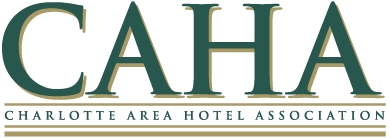Charlotte’s most lucrative recurring tourism event will leave town in 2020, a member of City Council and others said Monday. Beginning in 2021, Baltimore will host the Central Intercollegiate Athletic Association basketball tournament for three years, various media reports and industry sources said.
The conference tournament came here in 2006 and grew into an event worth $50 million annually, according to figures compiled by the Charlotte Regional Visitors Authority. Last year, the week-long men’s and women’s tournament, split between Bojangles’ Coliseum and Spectrum Center, brought 131,000 visitors to town while generating $29 million in spending by fans on hotel rooms, restaurant meals and other expenses.
“I think the conference is looking for, just possibly, a different location,” councilman Justin Harlow, a Democrat, said Monday night. “I think we put in a good bid. Besides that, we were unable to land it.”
Harlow, a member of the council’s economic development committee, said Charlotte remains “a great convention city” while conceding, “it’s going to be a loss — we’ve got to do our job and look to replace it.”
Historically black colleges and universities make up the CIAA, including Johnson C. Smith University in Charlotte. Nine of the 13 member schools are located in the Carolinas.
Without a definitive statement from the CIAA, some council members brushed aside interview requests prior to the council strategy meeting Monday at the Government Center. Mayor Vi Lyles, eyeing reporters and TV cameras in the hallway, walked past and offered impromptu advice while declining comment.
“Talk to the CIAA,” the mayor said.
The city and the conference signed a six-year contract extension in 2014 to keep the CIAA Tournament here through 2020. Local subsidies total $2 million annually, including discounted or free rental rates for city-owned buildings such as the convention center and the two arenas.
Republican councilman Tariq Bokhari spoke to reporters Monday about the CIAA, declining to confirm whether a decision on its future had been made while emphasizing the event’s importance to the local economy.
“While we haven’t been given an answer, that’s something that is going to make an impact on the bottom line — and not in a good way,” Bokhari said of reports the tournament is leaving. “My hope is we continue to have a partnership and relationship with the organization over time and see what they have to say.”
As successful as the CIAA has been, it’s also faced scrutiny over shootings and other public safety concerns tied to incidents during tournament week. In each case, the violence stemmed from tournament-themed parties and events that weren’t sanctioned by the conference.
Council and the city last year approved tightened standards for large parties and other events during the CIAA Tournament and other high-profile tourism events in an attempt to eliminate, or at least reduce, safety concerns.
At the same time, conference and school executives and fans fumed over an incident in 2015 when the Ritz-Carlton charged CIAA fans a 15% fee on food and drink served in the lobby during tournament week — a fee not charged during NCAA basketball tournament weekends or other special events in Charlotte.
The hotel eventually refunded the surcharges and donated $75,000to the CIAA. Conference and tournament organizers have battled what they consider exorbitant hotel room rates throughout the event’s run here.
Ray McKinnon, an African-American pastor and activist, alluded to racial tension and disparity in a tweet Monday after news surfaced about the CIAA’s exit.
“This might be what we get when we treat the attendees of this tournament like a marauding horde,” McKinnon wrote.
Neither the city nor the conference confirmed the decision, but the CIAA is expected to disclose plans Tuesday morning to move the tournament.
Last year, the conference solicited bids for the tournament in 2021, 2022 and 2023. The CIAA considered bids from Baltimore, Charlotte and cities in Virginia. A decision was originally anticipated last month.
The CIAA ranks as one of the most successful and lucrative college basketball tournaments in the nation despite the fact that the conference competes in the lower-tier Division II. Alumni reunions, fashion and step shows, band and dance competitions and a history of cultural cachet long ago turned tournament week into a see-and-be-seen affair.
Even so, the party scene has, at times, overshadowed the main event: basketball. CIAA executives slashed ticket prices, reduced capacity at Spectrum Center and began using the much smaller Bojangles’ Coliseum for early-round games in an attempt to boost ticket sales and improve attendance.
The current contract with Charlotte included inducements to move the conference’s headquarters office to Charlotte from Virginia. That happened in 2015 and, to date, local incentives for the relocation total $171,000, including discounted office rent.
Mohammad Jenatian, head of the Greater Charlotte Hospitality & Tourism Alliance, told me Monday he had yet to be told the tournament is leaving. Jenatian called the CIAA a “great partner” and credited the tournament with proving Charlotte’s ability to stage major events.
Without the CIAA, Charlotte would not have hosted the 2012 Democratic National Convention — or convinced the Republican National Committee to bring its national convention here next year, he said.
Some in Charlotte see hope for the CIAA to return despite the tournament’s imminent departure.
“This is an event we should continue to go after,” councilman Harlow said. “It consistently has been a great event despite some issues over the past couple of years. (There’s) definitely a huge base of alumni here for Johnson C. Smith and other CIAA schools. I think we can do a better job in the future of promoting the games and putting less focus on the other social events. We’ll probably, definitely be putting in a bid in the next couple of years after the Baltimore contract ends.”
